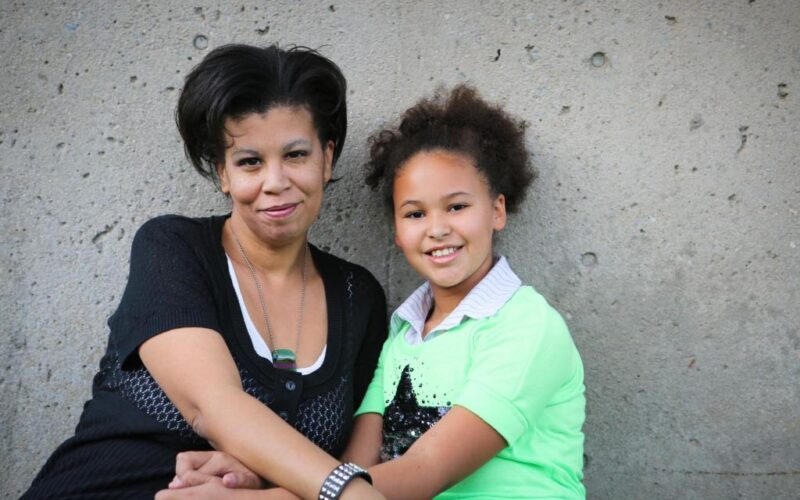Dear Eric: I have a tween age daughter (11) who used to be very sweet. Lately she has been very mouthy – always answers back and is rude, especially to me. I don’t know why she has changed so much. She has a younger brother and says I treat him better. I try to treat them the same. Any advice on how to handle this situation as I feel it’s only going to get worse?
– Exhausted Mom
Dear Mom: The good and the bad news is that this may be a phase that she’s going through, and not permanent. But it still needs redirection. You can help her develop emotional maturity by being clear about what respectful conversation is and how you expect to be addressed. This doesn’t always have to be a reprimand; try also coaching her. “I don’t like to be spoken to like that; why don’t you rephrase.”
You can also model this for her by asking her to tell you when she feels that you’re treating her differently from her brother. Showing openness to her perspective so that the relationship can flourish will be impactful for her.
Dear Eric: Our granddaughter has been seriously dating her beau for nearly eight years. He is 35 and she is 30.
A week ago, he was found to have a brain tumor. His mother will not allow her to see him at the hospital. Granddaughter is devastated. His mother was verbally abusive to our granddaughter.
Does his mother have the right to keep her from visiting him at the hospital? Mother is vicious with her words and adamant.
Granddaughter communicates with one of his cousins, checking on him. But she only wants to be able to tell her beau that she loves him. His fate is unknown. Any advice from you would be greatly appreciated.
– Locked Out
Dear Locked Out: I’m so sorry about this. It appears that the mother’s shock and grief are manifesting in a way that’s neither fair nor kind to your granddaughter. As his blood relation, she can dictate who has access to her son, depending on the hospital’s policy. Your granddaughter may want to reach out to hospital administration to see what their policy is and if there’s an option for her within its scope.
Another option is to write the beau a letter and get it to him through the cousin. Or ask the cousin to FaceTime from the hospital, if the beau is able to communicate. It’s not ideal, but your granddaughter need not subject herself to more vitriol from the mother.
Dear Eric: Regarding your response to the person trying to support a friend who had started to express anger while going through cancer treatments (“Friend of Foe”). I’m currently going through chemotherapy right now. As part of that process, I take a strong steroid the day before, the day of, and the day after my infusion. I can’t say what the steroid does to other people, but it makes me a bit “nasty” with many I come in contact with during this time. Even some that are there to support me. Your advice in the response was great. Given the circumstances her friend is going through, allow her some leeway. Trust me, the support means a lot. The patient gets a free pass on being cranky some days. It’s not personal.
– No Hard Feelings
Dear Feelings: Thanks for this perspective. It’s important to note that no one should tolerate abusive language and that sometimes we need to hold boundaries in a friendship to keep everyone emotionally safe, but I appreciate this additional perspective. We’re not our best when we’re sick. We’re allowed not to be our best; it’s part of being human. Sometimes supporting ailing or recovering friends means holding space for them to be whoever they are on that day so they can get back to feeling their best.
Dear Eric: I’d like to add to your response to “Friend or Foe”, whose best friend was battling cancer and often reacted angrily when asked how she was feeling. Many patients who are battling cancer are often exhausted by people asking how they’re doing, how the chemo’s going, are they in pain. They don’t want to be defined by their cancer; they want to have “normal” conversations with their friends … and they don’t want to have the additional burden of their friends’ grief. I’m a family physician and my dear patients who were struggling with cancer expressed such relief to be treated as a “normal” person.
Bottom line? Let the patient lead the conversation and respect her boundaries. Listening, not probing, is a wonderful gift.
– Old Doc
Dear Doc: This is very wise advice. A great reminder that normalcy, even in the midst of extraordinary circumstances, can be so nourishing.
(Send questions to R. Eric Thomas at eric@askingeric.com or P.O. Box 22474, Philadelphia, PA 19110. Follow him on Instagram and sign up for his weekly newsletter at rericthomas.com.)
©2025 Tribune Content Agency, LLC.
Originally Published:








